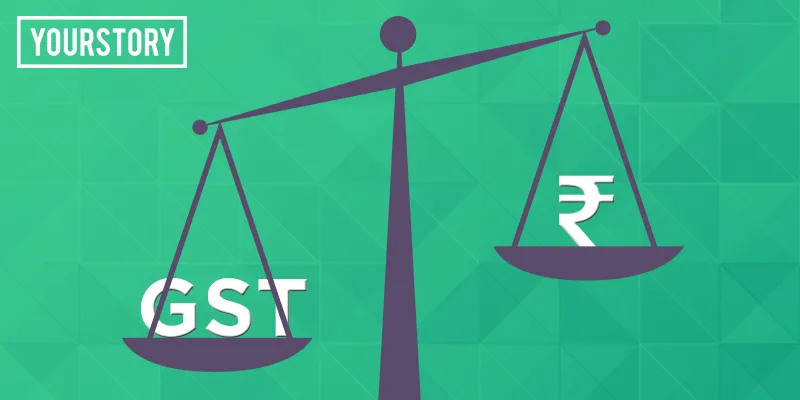Will GST cause inflation, and how long will it last?
The country is going gaga over the reforms that Goods and Services Tax (GST) is going to bring in, like the ease of starting business, elimination of dual taxation, simpler process, reduction in logistics cost etc. But lurking in the back of everyone's mind is the question whether it would bring with it inflation.
Inflation was one of Central bank – Reserve Bank of India's (RBI) major concerns in the third bi-monthly monetary policy that was presented recently. Retail inflation was at a 22-month high, at 5.77 percent in June, largely attributed to food and fuel inflation. The government is banking on the good monsoon predictions to bring down the food inflation, and maintains targets at five percent. However, there is widespread concern that inflation will get worse in the coming months due to the roll-out of the 7th Pay Commission and implementation of GST.

After clearing the major roadblock in Raya Sabha at the start of this month, the government is hopeful to implement GST by April 2017. It will harmonise 11 State and Central levies into a national sales tax. The final bill is very different from what was originally proposed, due to the complex political system of the country, but will nevertheless bring taxation reforms that the aam aadmi is eagerly waiting for.
Linkage between GST and inflation
RBI Deputy Governor Urjit Patel pointed out that about 55 percent of the basket of items in the consumer price index (CPI) are exempt from GST. The State and Centre have built a uniform list of items that will be excluded from GST. As most of the items in the CPI basket will not be affected, the impact of GST implementation on inflation becomes marginal.
Currently, the States exempt Value Added Tax (VAT) on unprocessed items that are primarily consumed by the poor, such as vegetables, fruits, grains, salt, and other necessities such as khadi etc. The Centre, on the other hand, provides exemption on excise for processed foods such as butter and cheese, pharmaceuticals and fruit-based items. The new list will bring the “exemption raj” to a halt and will include merit goods such as food that is featured prominently in the consumption basket of the poor.
Chief Economic Adviser of Government of India Arvind Subramanian believes that poor will largely be protected under the GST since 53-54 percent of the CPI basket will be exempt from it, 30-35 per cent will be taxed at a lower rate, and only 12-13 per cent will be taxed at the normal rate. Thus, there is no obvious reason as to why GST implementation will bring about a spike in inflation.
The negative list of services exempted from the levy will be reduced to include only essential services such as health, education etc.
If maintained below 20 percent, GST will marginally impact inflation
Subramanian opines, “The lower the standard rate, the lower will be the impact on inflation”. Thus, if standard rates are maintained anywhere between 18 and 20 per cent, the impact on inflation will be negligible. State Bank of India's latest report Ecowrap seconds this opinion.
Standard rate will be levied on most goods barring some essential ones and some demerit items, which will be levied at a lower and higher rate respectively. Inflationary pressures largely depend on the split ratio of revenue neutral rate (RNR) between low, standard and higher rates.
Subramanian’s panel did a sensitivity analysis in three scenarios
- Single rate GST of 14 percent with no exceptions
- Low rate of 12 percent, a standard rate of 18 percent, and a high rate of 35 percent
- Low rate of 12 percent, a standard rate of 22 percent, and a high rate of 35 percent
The first case has to obviously be ruled out, and based on the learnings of the other two scenarios, Arvind concludes that if GST rates are higher, as demanded by the States to protect their revenue requirements, it will be self-defeating.
“Service tax rate is definitely going to go up from the current 15 percent rate. However, as estimated by Subramanian’s panel, at 18 percent RNR, the net impact will be minimal,” said Dipojjal Saha, Economist at Antique Research.
As per the estimates by a recent report by Nomura, core CPI might impact inflation by 10-40 bps in the first year of implementation. However, the fiscal front will witness higher gains through increase in tax collections. HSBC’s report estimates inflation hike to be negligible below 18-percent GST rate, and high at more than 18 percent (but one off) for the short term. It will bring down inflation over time.
Looking at examples of countries like Canada, Australia and New Zealand and also developing nations like Malaysia, where GST was implemented in April 2015, all economies witnessed one-time increase in inflation for a very short period after GST implementation, which normalised eventually. However, a direct comparison cannot be done as policy and rates differ with every country.
GST council to decide the rates
The bill passed in the Upper House does not talk about the rates. The final decision will be taken by the GST Council, which will have representation from both States and the Centre.
Only after the rates are decided with both the States and the Centre's consent can the actual impact on inflation be correctly calculated.
Conclusion
Outgoing RBI Governor Raghuram Rajan said that it will be too early to discuss the impact GST will have, as the rates have not been finalised yet. Also, if it does lead to increase in cost of a few items, it will also result in the decrease of a few others. Thus calculating a net-off impact will be wiser. The RBI kept its inflation target unchanged as it speculates that GST will bring in a generalised inflation in the economy in the coming year. However, the actual impact can only be calculated after the GST Council decides on the rates.







